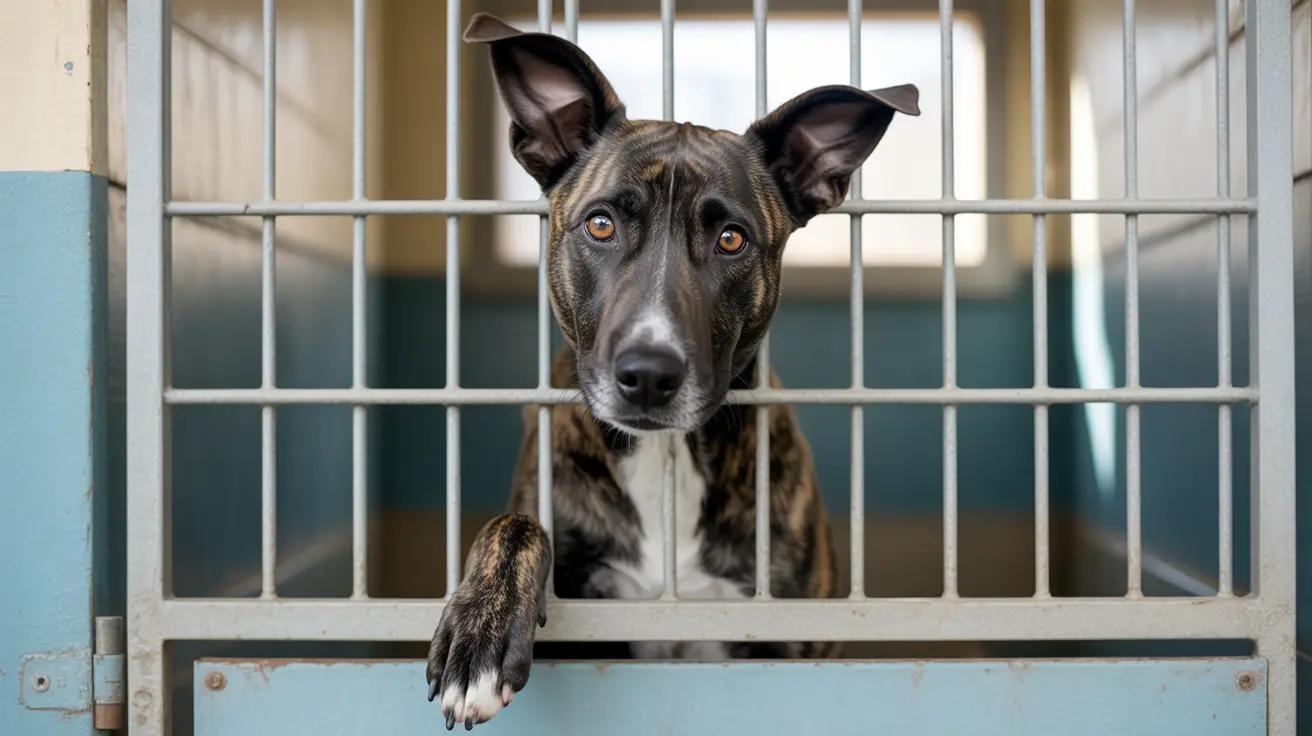Kentucky Humane Society Foster Program Opens Doors for Winter Pet Care Volunteers
The Kentucky Humane Society (KHS) is actively seeking foster volunteers as winter approaches, preparing to provide temporary homes for shelter animals in need of a break from facility life. This foster program initiative aims to address overcrowding while giving vulnerable pets the individualized care they require during the colder months.
Foster volunteering Louisville has become increasingly important as shelters experience seasonal challenges. The Kentucky Humane Society foster program offers pet parents an opportunity to make a meaningful difference in animals' lives while helping reduce shelter overcrowding that typically intensifies during winter months.
How to Foster Shelter Animals Through KHS
The process to become a foster volunteer is straightforward and designed to match the right animals with appropriate homes. Potential fosters complete an online orientation session, followed by submitting a foster application and joining the notification list for pet placement opportunities.
KHS provides comprehensive support for foster families, including all necessary supplies such as food, crates, bedding, and medical preventives. This temporary pet foster care arrangement ensures that both the animals and foster families have everything needed for a successful experience.
Foster Care for Large Dogs and Special Needs Animals
Large-breed dogs often face longer shelter stays due to space constraints and housing restrictions many potential adopters face. Foster care for large dogs helps these animals decompress in a home environment while freeing up valuable kennel space for incoming animals.
The program also focuses on fostering animals recovering from surgery, providing quiet environments where pets can heal properly away from the stress and noise of shelter life. These animals require extra attention and care that foster homes can provide more effectively than busy shelter environments.
Kitten Season Fostering and Specialized Care
Fostering cats and kittens represents a significant portion of KHS's foster needs, particularly during kitten season which extends from spring through late fall. Young kittens, especially those requiring bottle feeding or needing socialization, thrive in foster environments where they receive one-on-one attention.
Adult dog foster care provides mature animals with opportunities to showcase their personalities and training in home settings, making them more attractive to potential adopters. These dogs often benefit from the routine and stability that foster homes provide.
Pet Foster Supplies Included and Support Systems
Foster pet behavior support comes through KHS's private online support group, where experienced foster volunteers share advice and encouragement. The organization also provides behavioral guidance and educational materials to help foster families navigate common challenges.
Foster pet medical care remains the responsibility of KHS, with the organization covering all veterinary expenses and providing guidance on administering medications or managing special medical needs. This comprehensive support system ensures foster families feel confident caring for their temporary pets.
Humane Society Foster Requirements and Benefits
The humane society foster requirements are designed to ensure successful placements while remaining accessible to various living situations. Foster families should be prepared to dedicate 1-2 hours daily to feeding, cleaning, socializing, and providing basic care for their foster animals.
Benefits of fostering shelter pets extend beyond helping animals in need. Foster families gain valuable experience with different breeds and temperaments, often learning about pet care while contributing to their community's animal welfare efforts.
Adoption Ambassador Program Kentucky Humane
Foster volunteers often serve as unofficial adoption ambassadors, helping potential adopters learn about their foster pets' personalities, preferences, and needs. This firsthand knowledge proves invaluable in making successful adoption matches that benefit both pets and their new families.
Frequently Asked Questions
- How do I become a foster volunteer with the Kentucky Humane Society (KHS)?
To become a foster volunteer, you need to complete an online orientation, fill out a foster application, and join the notification list for pet placement opportunities. KHS provides all necessary supplies and ongoing support for foster care.
- What types of animals can I foster through KHS, and what care might they need?
KHS fosters dogs, cats, kittens (including bottle-fed and unsocialized), nursing moms with litters, and animals recovering from illness or surgery. Foster care involves providing food, socialization, basic medical care, and a quiet environment away from shelter stress.
- What is the typical foster commitment period, and what kind of daily care is required?
Foster assignments usually last about two weeks but can range from a few days to several months. Fosters should devote 1–2 hours daily to feeding, cleaning, socializing, and managing any medical care or behavioral needs.
- Are there any special considerations for fostering large-breed dogs or during kitten season?
Large-breed dogs often have longer shelter stays, so fostering them helps reduce overcrowding. Kitten season (spring to late fall) increases foster demand due to a surge in kittens needing extra care and socialization.
- What support and resources does KHS provide foster volunteers?
KHS supplies all necessary items such as food, crates, and medical preventives, offers a private online support group, behavioral advice, and medical assistance. They also provide educational materials and emotional support for dealing with the challenges of fostering.
The Kentucky Humane Society's call for winter foster volunteers represents an opportunity for Louisville-area pet lovers to directly impact animal welfare in their community. By opening their homes temporarily, foster families provide life-saving care while helping prepare shelter animals for their forever homes.






